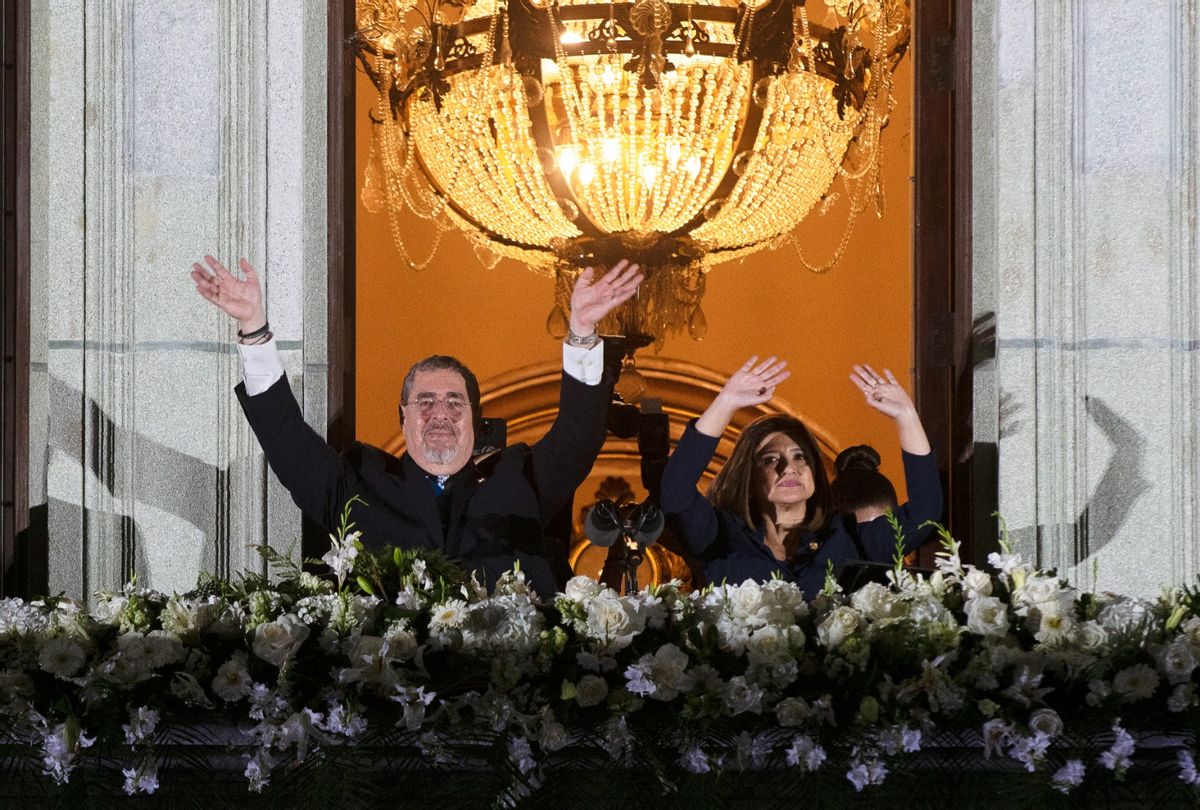“The coup, for now, is over”: Activist sworn in as Guatemala’s president despite right-wing scheme

Anti-corruption activist Bernardo Arévalo was sworn in as Guatemala’s president early Monday after months of fierce opposition from the Central American nation’s right-wing political establishment, obstruction that progressive campaigners and other leaders in the region decried as a coup attempt.
Arévalo’s inauguration was scheduled for Sunday afternoon, but the proceedings were delayed for hours as conservative legislators stonewalled efforts to select new congressional leadership.
The delay, part of a sustained push by right-wing forces to derail the transfer of power, sparked fury in the streets, with Arévalo backers—including Indigenous groups and the country’s youth—mobilizing as it appeared that the president-elect’s opponents were launching a last-ditch attempt to stop him from taking office.
Leading government officials from other Latin American nations expressed alarm over the delay and said in a joint statement that “the will of the Guatemalan people must be respected.”
Reuters reported that Arevalo’s inauguration was “thrown into disarray after the Supreme Court allowed opposition lawmakers to maintain their leadership of Congress, and forced members of the president’s Semilla party to stand as independents, further diluting its presence.”
“Semilla holds only 23 of the 160 seats in Congress,” the news agency noted. “Arevalo’s authority, however, got a boost after prominent Semilla lawmaker, Samuel Pérez Álvarez, was unexpectedly elected as the Congress president.”
Sunday’s chaos capped off a drawn-out fight by Guatemala’s entrenched and corrupt political establishment to prevent a reformer from taking power. Arevalo has been described as the most progressive Guatemalan president since Jacobo Árbenz, who was ousted in a U.S.-sponsored coup in 1954.
Following his landslide victory in August, Guatemala Attorney General Consuelo Porras—an ally of former President Alejandro Giammattei who was appointed to a second four-year term in 2022—launched an aggressive legal campaign to halt Arevalo’s ascent to the presidency, alleging that he and his party engaged in various forms of election fraud.
Arévalo, who also faced credible death threats and assassination plots, rejected such accusations as part of a high-level coup attempt and said he would push for Porras’ resignation.
“In the 20th century, coups involved tanks, bayonets, soldiers, and lasted two or three days,” Arévalo said in an interview with The New York Times last month. “The coups of the 21st century are carried out with members of Congress, with lawyers, in the courts. It’s more sophisticated, takes much more time, it’s done with the pretense of institutional continuity.”
On Monday, in his first act as Guatemala’s president, Arévalo “visited the site outside the attorney general’s office where Indigenous protesters have kept vigil for more than three months, demanding authorities respect the vote and that Porras step down,” The Associated Press reported.
“It fills me with deep honor to assume this lofty responsibility, showing that our democracy has the necessary strength to resist and that through unity and trust we can change the political panorama in Guatemala,” Arévalo said in his inaugural address. “There cannot be democracy without social justice, and social justice cannot prevail without democracy.”

